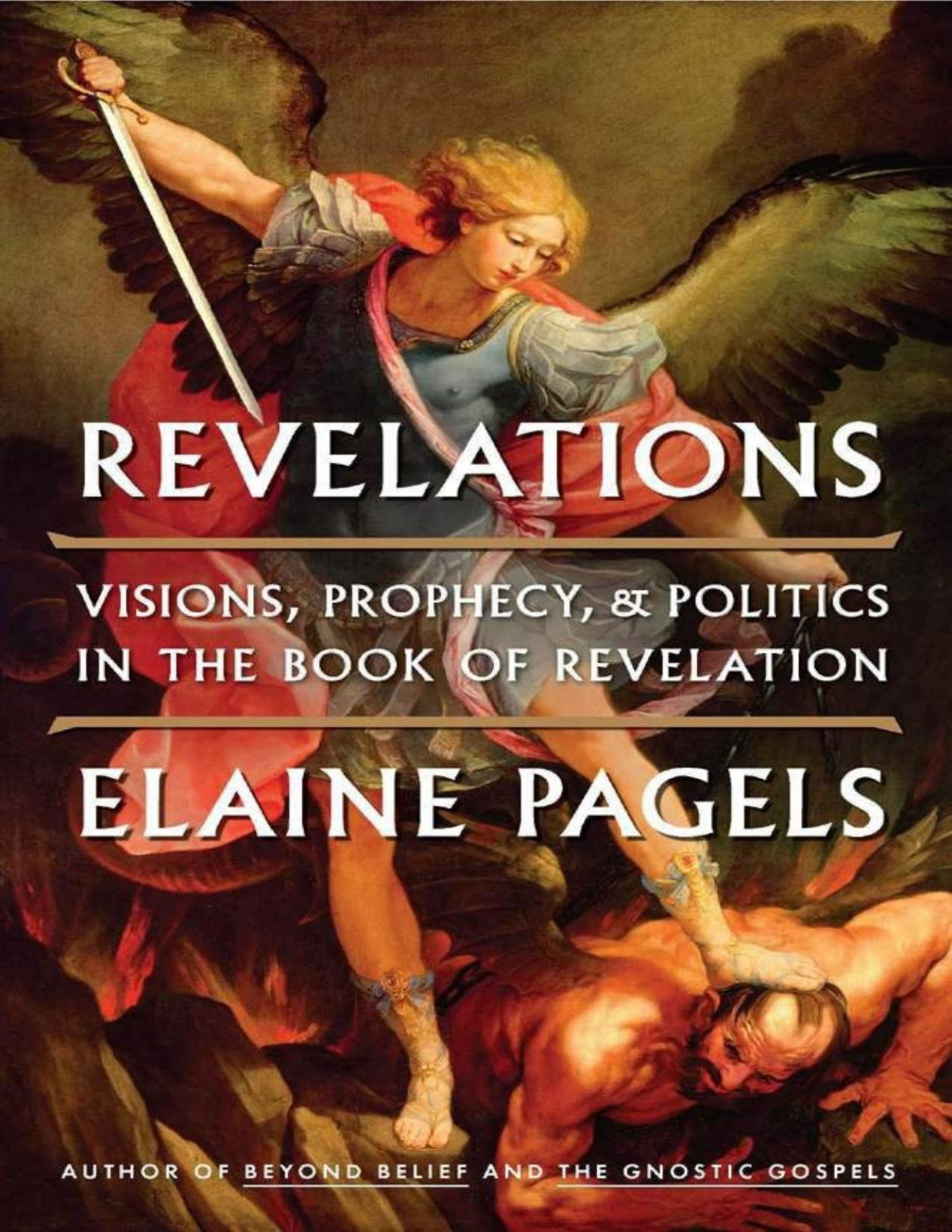

Most ebook files are in PDF format, so you can easily read them using various software such as Foxit Reader or directly on the Google Chrome browser.
Some ebook files are released by publishers in other formats such as .awz, .mobi, .epub, .fb2, etc. You may need to install specific software to read these formats on mobile/PC, such as Calibre.
Please read the tutorial at this link: https://ebookbell.com/faq
We offer FREE conversion to the popular formats you request; however, this may take some time. Therefore, right after payment, please email us, and we will try to provide the service as quickly as possible.
For some exceptional file formats or broken links (if any), please refrain from opening any disputes. Instead, email us first, and we will try to assist within a maximum of 6 hours.
EbookBell Team

5.0
48 reviewsA startling exploration of the history of the most controversial book of the Bible, by the bestselling author of Beyond Belief.
Through the bestselling books of Elaine Pagels, thousands of readers have come to know and treasure the suppressed biblical texts known as the Gnostic Gospels. As one of the world's foremost religion scholars, she has been a pioneer in interpreting these books and illuminating their place in the early history of Christianity. Her new book, however, tackles a text that is firmly, dramatically within the New Testament canon: The Book of Revelation, the surreal apocalyptic vision of the end of the world . . . or is it?
In this startling and timely book, Pagels returns The Book of Revelation to its historical origin, written as its author John of Patmos took aim at the Roman Empire after what is now known as "the Jewish War," in 66 CE. Militant Jews in Jerusalem, fired with religious fervor, waged an all-out war against Rome's occupation of Judea and their defeat resulted in the desecration of Jerusalem and its Great Temple. Pagels persuasively interprets Revelation as a scathing attack on the decadence of Rome. Soon after, however, a new sect known as "Christians" seized on John's text as a weapon against heresy and infidels of all kinds-Jews, even Christians who dissented from their increasingly rigid doctrines and hierarchies.
In a time when global religious violence surges, Revelations explores how often those in power throughout history have sought to force "God's enemies" to submit or be killed. It is sure to appeal to Pagels's committed readers and bring her a whole new audience who want to understand the roots of dissent, violence, and division in the world's religions, and to appreciate the lasting appeal of this extraordinary text.
From BooklistStarred Review The preeminent scholar of the early-Christian-period sacred writings found at Nag Hammadi, Egypt, in 1945 uses them as well as the Bible to illuminate the New Testament’s last book, which almost wasn’t added to the canon because, Pagels explains, it conflicted with the Pauline epistles. For it revived the argument over how Judaistic the Gentiles in the Jesus movement had to be, which Paul had answered conclusively in Galatians. The visionary tract squeaked into the NT only when fourth-century bishops saw that, if the aim of its wrath was shifted from Gentiles and their advocates to those who fit in the new category of heretics, it could help with consolidating the institutional church. But how Revelation made the cut is only one of Pagels’ revelations about it. She also discloses the extent to which it extrapolates from the prophetic tradition of Ezekiel, Isaiah, Jeremiah, and Daniel; its status as one of many similarly visionary texts, typically also called Revelation and more Gnostic, found at Nag Hammadi; its primary purpose as anti-Roman propaganda intended to rally continuing Jewish resistance after the destruction of the temple in Jerusalem; and its modern role in fostering hope in the face of seemingly ultimate cataclysm. A lot for so little a book to do, but, thanks to Pagels’ sublimely fluent exposition, not too much. --Ray Olson
Review"Revelations is a slim book that packs in dense layers of scholarship and meaning . . . One of [Elaine Pagels's] great gifts is much in abundance: her ability to ask, and answer, the plainest questions about her material without speaking down to her audience . . . She must be a fiendishly good lecturer."
(The New York Times )
"One of the significant benefits of Pagels's book is its demonstration of the unpredictability of apocalyptic politics . . . The meaning of the Apocalypse is ever malleable and ready to hand for whatever crisis one confronts. That is one lesson of Pagels's book. Another is that we all should be vigilant to keep some of us from using the vision for violence against others."
(The New York Times Book Review (Editors' Choice) )
"Pagels is an absorbing, intelligent, and eye-opening companion. Calming and broad-minded here, as in her earlier works, she applies a sympathetic and humane eye to texts that are neither subtle nor sympathetically humane but lit instead by fury."
(Adam Gopnik, The New Yorker )
"Any book in the Bible that can be cited simultaneously by deeply conservative end-of-times Christians who see the Apocalypse around the corner and by Marxist-friendly Christians looking forward to justice at the End of History must have a compelling back story. That back story is told well and concisely by Elaine Pagels in her new book, Revelations."
(The Boston Globe )